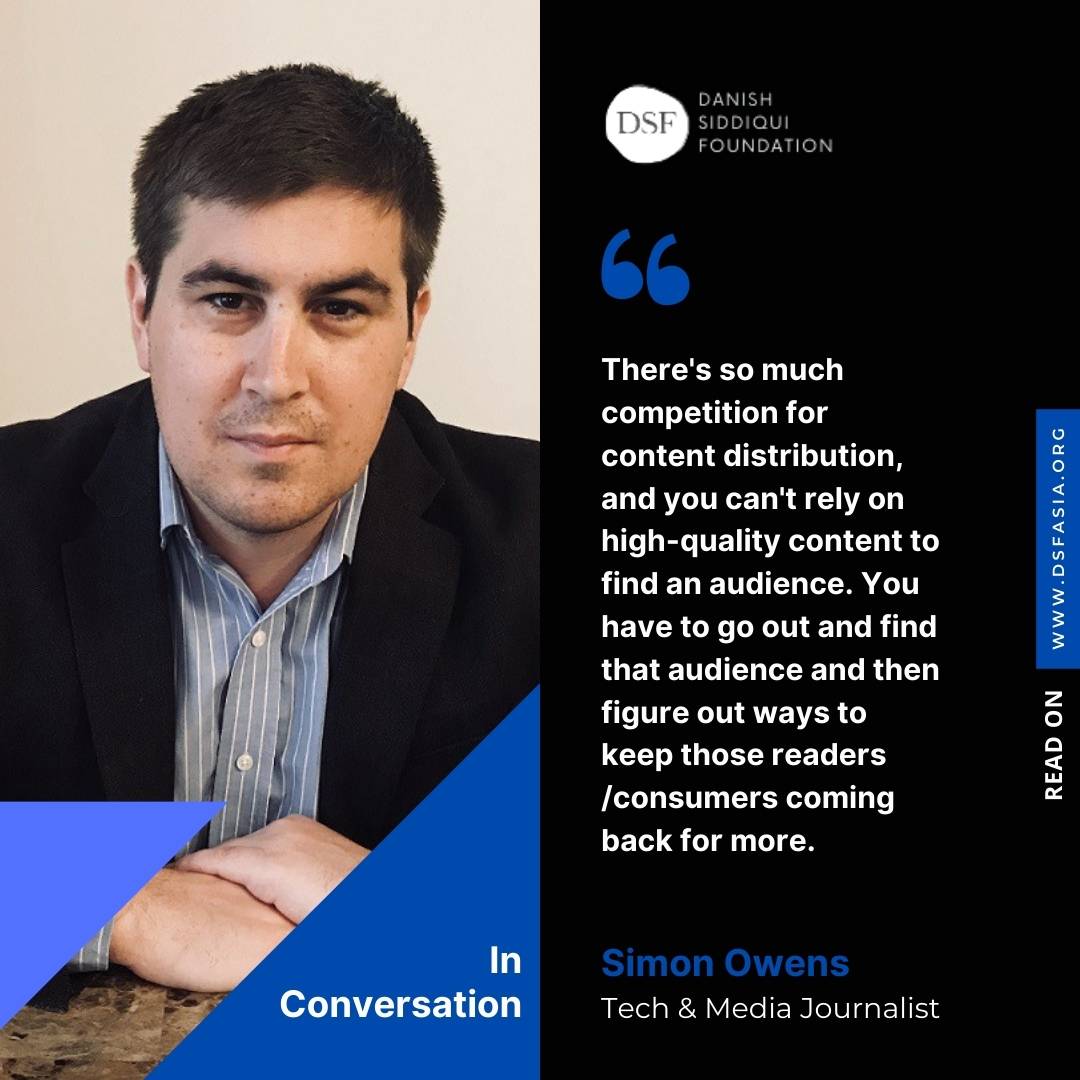
Why did you start a career in journalism?
Well, I’ve wanted to be a writer since 6th grade, though my focus was on fiction for the first several years. After graduating from college with an English degree in 2006, I had very few real job skills and no real-world experience, and I started shooting my resume out to every newspaper in the state. Luckily, this was before the recession, so I got a reply back from a small local newspaper. They hired me for my first reporting job. I had also been blogging since 2003, so as I amassed reporting skills at my newspaper job, I began to apply those same skills to my blog, which led to an obsession with journalism and online media.
How did your interest develop in the media and technology area?
I think it was just a natural outgrowth of my interest in the blogosphere and web publishing. In 2005, I launched a blog called Bloggasm, and I used it to interview successful bloggers. I just had this fascination with the idea that the internet provided all these free tools for publishing and distribution. With absolutely no resources, anybody could launch their own media company. That fact still blows my mind to this day.
How do you keep pace with this fast-evolving media industry?
A mixture of Twitter and newsletters, mostly. I subscribe to many newsletters these days, and the first few hours of my morning consist of reading through these and saving links to read later. I also interview a lot of successful media operators for my newsletter and podcast. Not only does this create great content, but it gives me firsthand insights into what’s going on within the industry.
Can quality journalism survive without a comprehensive marketing strategy in this digital age?
Definitely not. There’s so much competition for content distribution, and you can’t rely on high-quality content to find an audience. You have to go out and find that audience and then figure out ways to keep those readers/consumers coming back for more.
How have digital communication technologies helped in democratizing journalism?
It used to be that you needed lots of money to print and distribute content, and newspapers established local monopolies as a result. Now you need little more than a smartphone to become a publisher. The barrier to entry is so low.
Has digital journalism reduced traditional journalism’s relevancy?
It’s reduced somewhat, though traditional journalism still plays an essential role in our information ecosystem. Social media can surface firsthand accounts of events, but traditional media is still needed to contextualize news and explain complicated subjects.
Can subscription and paywall-based news business models survive in the long term?
I should hope so! If the media is going to survive and stay healthy, it needs news consumers to help pay for the news gathering. Advertising revenue alone won’t cut it.
Tell us about the media industry newsletter you publish and the podcast “The Business of Content” you host, which the industry has very well received. What was the main idea behind these?
My podcast and newsletter cover everything from the Creator Economy to traditional media. Whether you’re an executive at The New York Times or an independent YouTuber, the same internet economics applies to content creation, and the two sides have a lot to learn from each other. So I’m trying to bridge that gap — teaching independent content creators to act more like traditional media companies and vice versa.
What advice would you give to someone who wants to become a tech journalist?
Don’t simply apply to jobs and sit back to wait for an employer to contact you. Go out and make media. Start a blog. Start a newsletter. Start a podcast. Start a YouTube channel. Start acquiring the skills and audience you can later leverage in a traditional media job. This will make you much more attractive to a potential employer, and it’ll provide the foundation on which you can build your career.
Disclaimer: The views and opinions expressed by those interviewed by the Danish Siddiqui Foundation, including all program participants, are solely their own current opinions regarding events and are based on their own perspectives and opinions. The views and opinions expressed do not necessarily reflect the views or opinions of the Danish Siddiqui Foundation, or the companies with which any program participants/interviewees are, or maybe, affiliated.




